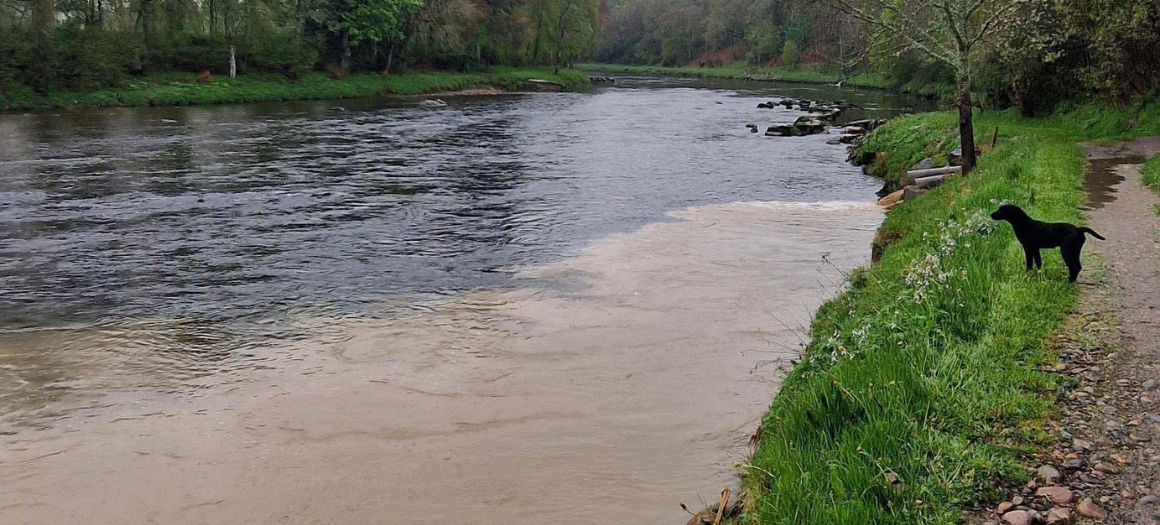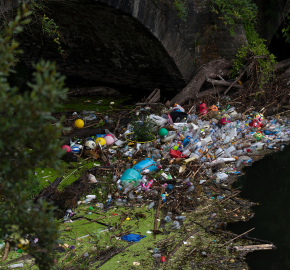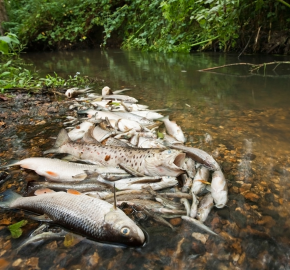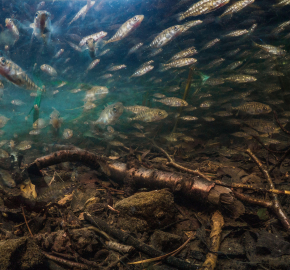SEPA fails in its statutory duty to protect River Dee from blatant pollution

Serious pollution of the River Dee, associated with a major commercial housing development by Kirkwood Homes at Inchmarlo, continues to occur despite a written assurance by SEPA, following similar events in March, that it would “take whatever action is necessary to prevent such impacts from occurring”.
On several occasions last week (on May 9 and 10) heavily silted liquid poured into the Dee, which is a Special Area of Conservation for Atlantic salmon, turning the normally clear water a dirty brown colour. These events were recorded (photographs and video are available on request).
“It is inexcusable that SEPA, the agency responsible, has failed so dismally to prevent the dumping of very substantial quantities of sediment into the River Dee, one of Scotland’s most important salmon rivers.
Rachel Mulrenan
Scotland Director of WildFish
Rachel continued: “after a similar episode associated with the construction site in Inchmarlo in March, SEPA made several site visits but clearly it has failed to ensure that adequate measures were in place to stop a re-occurrence.”
The ingress of silt into a river can have numerous adverse impacts:
- It can cause stress to and affect the gills of migrating salmon smolts (May is the prime time for their downstream migration to the sea).
- It can clog up the riverbed (thus compromising its viability for salmon spawning).
- It can smother (often fatally) invertebrates (which are a vital part of the river food chain).
- It can fundamentally alter the natural integrity of localised ecosystems.
Rachel Mulrenan added: “The Scottish Government acknowledges that our wild salmon are in crisis. Many of the causes, particularly those associated with the marine environment, require international action. However, we have the immediate power to tackle in-river problems and, when they happen, it is critical that regulators act swiftly and decisively to do so. It does appear that in this instance SEPA has been asleep on the job.”
“This is appalling. The management and governing bodies, especially SEPA, who are responsible for the River Dee’s salmon population need to act with more urgency when pollution like this is occurring.”
William Foster
Manager of the Park Fishery on the Dee (where the pollution has occurred)
SEPA has a representative on the Dee District Salmon Fishery Board.



